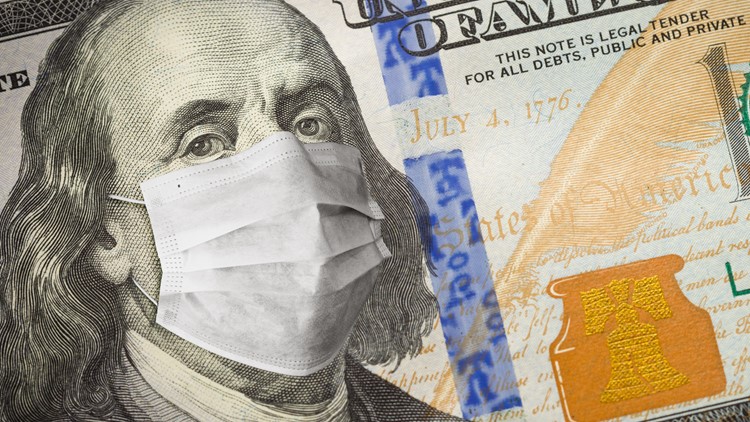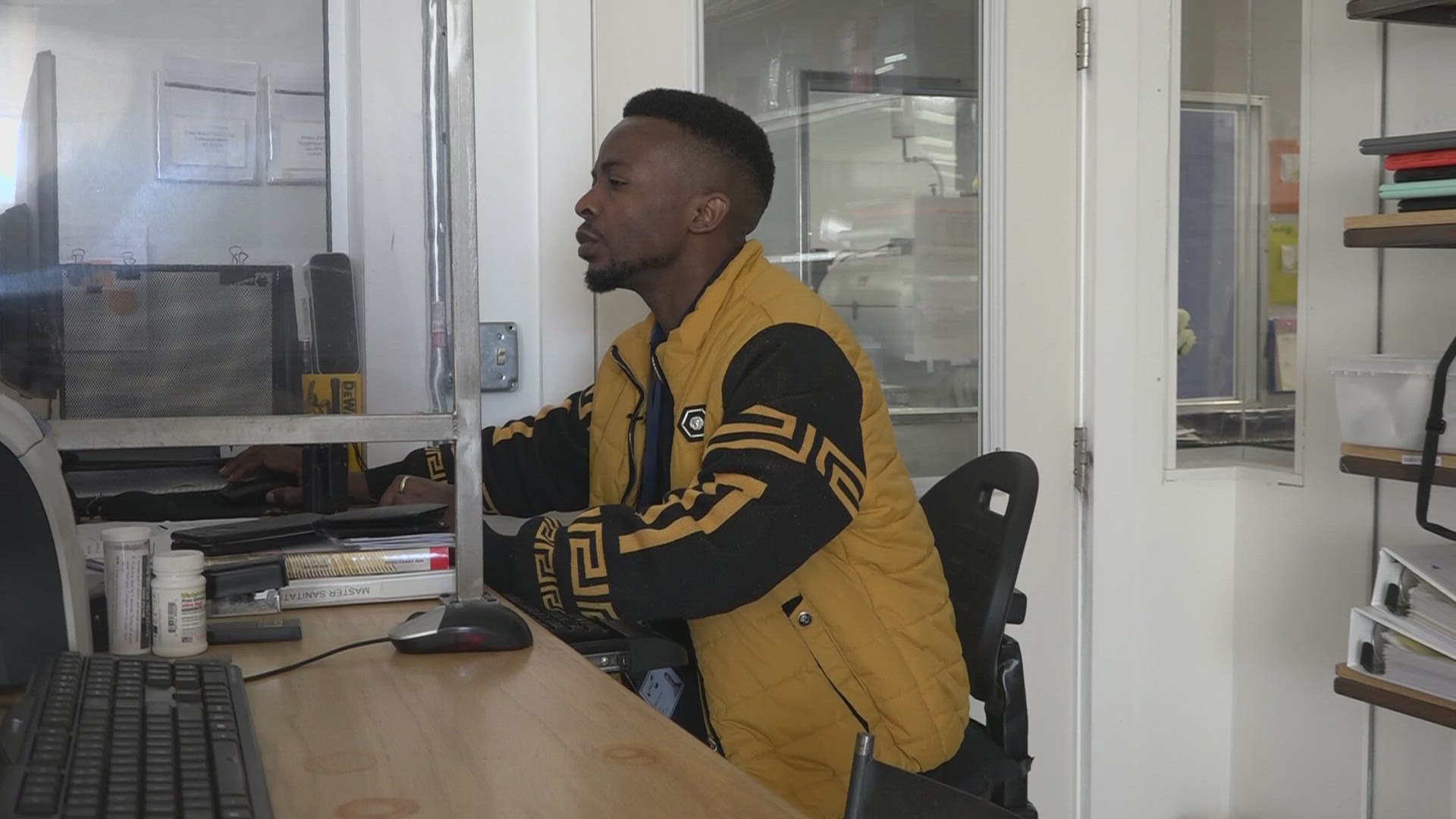AUGUSTA, Maine — On Tuesday, Gov. Janet Mills’ Economic Recovery Committee (ERC) released its final recommendations to sustain and grow Maine’s economy in wake of the ongoing coronavirus pandemic.
The ERC’ was created by Mills in May in order to “develop specific policy recommendations to stabilize the state’s economy and build a bridge to future prosperity in the wake of COVID-19.” The Committee’s first report in July informed Mills’ allocations of Coronavirus Relief Funds for Maine schools, childcare providers, rental assistance, broadband Internet access to students, and the creation of the Maine Economic Recovery Grant program that has distributed $158.6 million to 3,551 Maine businesses and non-profits organizations.
In its final report, the committee urged action on additional federal stimulus and outlined eight strategies for economic recovery.
“Without federal stimulus to support businesses and nonprofits, expand benefits for unemployed workers, and provide relief funds for the State, our bridge to the future will stop at a pier,” the ERC wrote in its report. “At the end of it are businesses and nonprofits, arts and cultural institutions, state and local governments, families and individuals facing impossible decisions ahead. The ERC urgently calls on Congress, the current and incoming administrations to pass a new forward-looking stimulus package without delay. This was needed in July, and with the virus flaring out of control, it is an absolute imperative now.”
Politicians, including President-elect Joe Biden, and state leaders have been calling on Congress to address expiring CARES Act provisions, which are set to end in December. Rep. Jared Golden, D-2nd Congressional District, on Monday sent letters to House Speaker Nancy Pelosi and Minority Leader Kevin McCarthy decrying the lack of progress on a relief package.
“Because we have failed to take action, we have now put ourselves in the position of confronting a new challenge on the horizon: the expiration of a range of programs and policies first authorized by the CARES Act,” Golden wrote. “Addressing these particular challenges would not all require new funding, but they do require leadership and congressional action. While we should not lose sight of the need for a new round of stimulus, we would be foolish not to prepare for a situation in which the best step we can take in the next several weeks is to ensure that these important programs and authorities do not expire on December 31st.”
In a statement to NEWS CENTER Maine, Maine Independent Sen. Angus King said, "The fact that Congress hasn’t passed coronavirus relief legislation since March is legislative malpractice, plain and simple."
“Point blank - the pandemic and our economic crisis are not separate challenges. They are entirely woven together, and we must confront both of them to get our country physically and financially healthy," King continued. "There’s so much we need to do with this package – including extending enhanced unemployment benefits; increasing our support for small businesses, healthcare providers, and schools; and providing additional funds for the state and local governments that have led the response to this crisis." (See King's full statement at the bottom of this article.)
Maine Republican Sen. Susan Collins says "there is no higher priority than passing another Covid-19 relief package in December," and that she has had multiple meetings and calls with her colleagues in the Senate as well as members of the House.
"Any Covid-19 relief package must include legislation I co-authored to allow the hardest-hit small businesses to receive a second forgivable Paycheck Protection Program loan to help them stay afloat and continue paying their employees," Collins said. "We also need more resources to support testing and vaccine development, municipalities and schools, child care, and the U.S. Postal Service. Moreover, we need to provide targeted assistance to lobstermen, fishermen, farmers, and loggers as well as to the aviation and motorcoach industries."
Over the long-term, the Committee recommended action in eight targeted areas to chart Maine’s pathway to future prosperity, based on Maine’s 10-year Economic Development Plan released just months before the pandemic struck.
- INNOVATION: Invest boldly, strategically, and consistently in next-generation technology and innovation to grow our value-add economy
- ENTREPRENEURSHIP: Supercharge high-growth entrepreneurship while sustaining Maine’s vibrant and resilient small business sector
- TALENT DEVELOPMENT: Unleash the potential of Maine’s workforce by creating educational and training pathways for people of all experience levels to access careers in high-demand fields
- TALENT ATTRACTION: Establish Maine as a premier career, education, and lifestyle destination to attract diverse and talented professionals to relocate and define the state’s image beyond leisure and tourism
- INTERNET ACCESS: Ensure every Mainer has a high-quality internet connection to support economic development, remote work, distance education, telehealth, and meaningful community connections
- EARLY CARE AND EDUCATION SUPPORTS: Reinforce and reimagine Maine’s early care and education supports to ensure that parents can go to work with the peace of mind that their children are safe, nurtured, and prepared for success entering school
- HOUSING: Develop robust housing policies and programs that enable Maine people to live and raise their families near their work
- ADDRESS STRUCTURAL INEQUITIES: Make Maine a diverse, equitable, and inclusive state where all Mainers can reach their full potential
Read the detailed recommendations in the report attached below.
“I am grateful for the energy and diligence with which the entire committee approached this important work, particularly given the difficulties presented by the pandemic,” Mills said in a release. “These recommendations give us a strong roadmap to move our economy forward, and I strongly echo the committee’s call for added federal stimulus now, which will help sustain Maine people through these challenging times, allow us to continue fighting the pandemic head-on, and achieve our economic recovery.”
The ERC said they grew to understand that the full potential of the eight recommendations is not possible to achieve unless and until:
- The virus is under control and Maine’s public health infrastructure is strong
- The federal government invests fully in stabilizing the economy through federal stimulus
- Structural inequities are addressed so all Maine people can reach their fullest potential.
“This new report comes at a time when the virus is spreading like wildfire, making a strong public health infrastructure critical to social stability and an economic recovery,” the committee wrote. “With the virus out of control, businesses, nonprofits, and cultural institutions will struggle to survive; especially the hard-hit retail, tourism, and hospitality sectors.”
Above all, the committee noted, the pandemic’s disproportionate impact across age, income geographic and racial lines in Maine demands a significant commitment to address long-standing structural inequity, which will, in turn, have a positive economic impact on the state.
"Our recommendations value the potential and continuing economic contributions of people of color in Maine," Tae Chong, Portland City Councilor, Social Enterprise & Workforce Development Manager at Catholic Charities Maine, and chair of the ERC’s Diversity, Equity and Inclusion subcommittee, said in a release. "We believe in the next ten years and beyond, they will contribute more to our economy, workforce and they will help to create new markets for Maine businesses both in and out of state. We need people of color in Maine to help grow our economy, so that all of Maine succeed and prosper."
“Despite these ongoing challenges of the virus, our confidence in Maine is unshaken,” committee co-chairs Josh Broder and Lauri Lachance wrote. “We believe the following recommendations will get us back to the vision of the State Economic Development Strategy:
‘By 2030, Maine will be an international leader with a vibrant, sustainable, environmentally-responsible economy. All across the state, the people of Maine will have access to an unmatched quality of life and good-paying jobs.’”
Sen. King's full statement to NEWS CENTER Maine:
“The fact that Congress hasn’t passed coronavirus relief legislation since March is legislative malpractice, plain and simple. Across Maine, people are hurting – families struggling to make ends meet, business owners facing the threat of bankruptcy, states and localities being asked to do more with less. The House passed its first package to address this problem in May - half a year at this point - but since then Senate Majority Leader McConnell has shown absolutely no interest in negotiations to produce a strong bill that addresses the national need. When the White House and House of Representatives landed on a bipartisan response that was roughly $2 trillion, Senator McConnell offered up a take-it-or-leave-it bill that was one quarter of that amount, and didn’t take this crisis seriously.
Point blank - the pandemic and our economic crisis are not separate challenges. They are entirely woven together, and we must confront both of them to get our country physically and financially healthy. There’s so much we need to do with this package – including extending enhanced unemployment benefits; increasing our support for small businesses, healthcare providers, and schools; and providing additional funds for the state and local governments that have led the response to this crisis.
Senator McConnell has wasted months processing judicial nominees when we should have been doing the business of the American people - yet he refuses to offer a bill that even approaches this pandemic’s impact. There is no higher priority than this legislation, and I will keep pushing my colleagues on both sides of the aisle to come to the negotiating table for the good of the country.”



